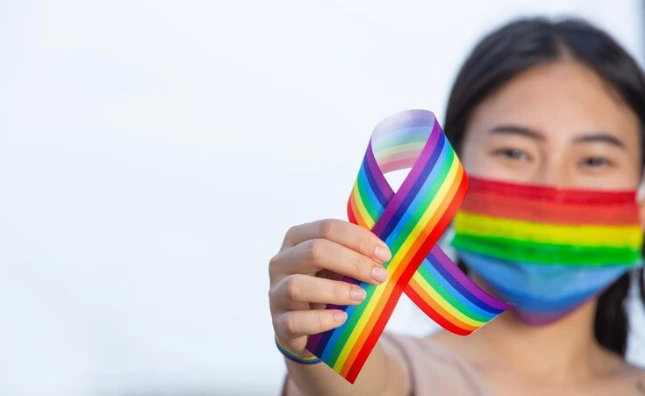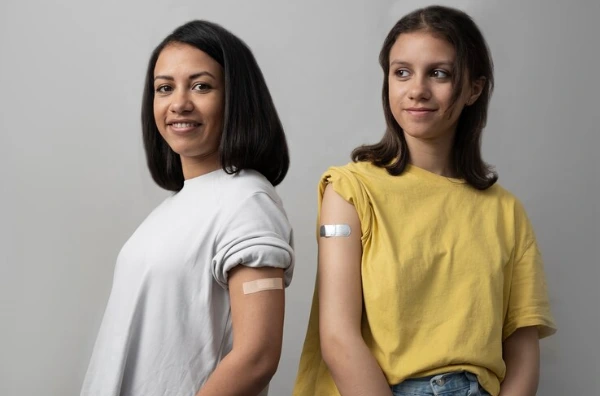HIV continues to be a major public health concern, particularly for LBTQA+ individuals who face unique challenges in accessing healthcare. Many experience discrimination, stigma, and financial difficulties that make it harder to receive proper medical attention and emotional support.
In Los Angeles, where the LGBTQ+ population is significant, the need for inclusive and compassionate healthcare services is critical. Fundación Vivir en Plenitud is working to bridge these gaps by providing medical, mental health, and social services to those affected by HIV. Their mission is to ensure that no one is left without the care they need.
This article explores the barriers to healthcare for LBTQA+ individuals with HIV, the current state of HIV in Los Angeles, and how Fundación Vivir en Plenitud is making a real difference.
Understanding HIV Challenges in the LBTQA+ Community
LBTQA+ individuals—especially transgender women, and bisexual men,—are disproportionately affected by HIV. Several factors contribute to this, including:
- Stigma and discrimination: Many LGBTQ+ individuals report facing judgment or rejection when seeking healthcare.
- Limited access to healthcare: Lack of inclusive medical providers and fear of mistreatment prevent many from getting tested or treated.
- Economic instability: A large portion of the LGBTQ+ community faces higher unemployment rates, making it difficult to afford medical treatment.
- Mental health challenges: Anxiety and depression, often linked to discrimination, can lead to delayed testing and treatment.
These barriers increase the risk of late diagnosis, untreated infections, and worsening health conditions.
HIV in Los Angeles: Key Statistics and Challenges
Los Angeles is home to one of the largest LGBTQ+ communities in the U.S., but HIV remains a serious issue.
- Over 58,000 people in Los Angeles County are currently living with HIV.
- In 2022, 1,400+ new HIV cases were reported, with Black and Latino men disproportionately affected.
- Transgender women are nearly 49 times more likely to contract HIV than the general population.
- Around 20% of people with HIV are unaware of their status due to a lack of testing.
These statistics highlight the urgent need for accessible, inclusive HIV services.

How Fundación Vivir Bridges the Healthcare Gap
1. Providing Comprehensive Healthcare Services
Fundación Vivir en Plenitud works with medical professionals, nurses, and social workers to ensure that LBTQA+ individuals receive proper HIV care. Their services include:
- Medication assistance to ensure that those diagnosed can start treatment immediately.
- Home healthcare support for individuals with advanced HIV/AIDS.
By making these services affordable and inclusive, Fundación Vivir ensures that people receive care without fear of discrimination.
2. Mental Health and Emotional Support
HIV is not just a physical condition—it affects mental and emotional well-being. Many people diagnosed with HIV experience:
- Anxiety, depression, and PTSD (Post-traumatic Stress Disorder).
- Fear of rejection from family or partners.
- Social isolation, especially among older LGBTQ+ individuals.
Fundación Vivir offers:
- One-on-one counseling with mental health professionals.
- Support groups where LBTQA+ individuals can share their experiences.
- Workshops on coping strategies, mental health awareness, and self-care.
These services help reduce stigma and provide emotional stability for those living with HIV.
3. Social and Financial Assistance
Navigating healthcare and financial aid can be difficult, especially for non-English speakers or low-income individuals. Fundación Vivir provides:
- Assistance with health insurance and financial aid applications.
- Guidance in accessing HIV treatment programs and community resources.
- Housing support and food assistance for people facing homelessness due to their diagnosis.
By offering these essential resources, Fundación Vivir ensures that LBTQA+ individuals can focus on their health without financial stress.
4. Spiritual and Holistic Care
For many individuals, spirituality and emotional healing play an essential role in their journey with HIV. Fundación Vivir offers:
- Spiritual guidance and counseling for those seeking emotional support.
- End-of-life doula services for individuals in advanced stages of illness.
These programs provide comfort, peace, and dignity to those facing difficult times.

(H3) How to Access Fundación Vivir’s Services
If you or someone you know needs help, Fundación Vivir en Plenitud offers:
📍 Location: 6420 Van Nuys Blvd, Suite 201, Van Nuys, CA 91401
📞 Phone: 213-980-4410
📧 Email: info@fundacionvivir.org
🌐 Website: Fundación Vivir en Plenitud
We provide confidential, compassionate care for those seeking HIV support.
We are here to help you
LBTQA+ individuals living with HIV in Los Angeles deserve access to safe, inclusive, and supportive healthcare. However, many face barriers such as discrimination, financial struggles, and lack of mental health resources.
Fundación Vivir en Plenitud is changing this reality by offering medical services, emotional support, and financial assistance to those in need. Their work saves lives and strengthens the community.
If you want to support their mission, consider donating, volunteering, or spreading awareness. Every effort helps create a future where healthcare is accessible to all.
Frequently Asked Questions
1. What is Fundación Vivir en Plenitud’s mission?
Fundación Vivir provides healthcare, mental health support, and social services to LBTQA+ individuals living with HIV.
2. How can I get tested for HIV through Fundación Vivir?
You can visit their Van Nuys location or contact them by phone to schedule a confidential HIV test.
3. Does Fundación Vivir provide financial assistance?
Yes, they help individuals access health insurance, medication programs, and financial aid.
4. Can I volunteer or donate to Fundación Vivir?
Yes! You can support their work by donating online or signing up as a volunteer.
5. How can I spread awareness about HIV in Los Angeles?
You can share Fundación Vivir’s resources, educate others, and encourage regular HIV testing in your community.

